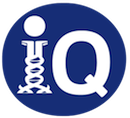About Staphylococcal enterotoxin B (SEB)
Staphylococcal enterotoxin B (SEB) is an enterotoxin produced by the gram-positive bacteria Staphylococcus aureus. It is a common cause of food poisoning due to its very stable biophysical nature. SEB is also a known superantigen, as it can trigger polyclonal T cell activation and massive cytokine release resulting in toxic shock syndrome. Its potency at low concentrations is due to simultaneous binding of SEB to the class II major histocompatibility complex (MHC) antigens expressed on professional antigen presenting cells (APCs) and the T cell receptor at the variable region of the β-chain. As this binding event occurs on a subset of TCR Vβ domains, a substantial number of T cells (20% of repertoire) are activated by SEB, resulting in the up-regulation of activation markers and proliferation, which can be measured by flow cytometry. In addition, SEB stimulation leads to massive systemic release of pro-inflammatory cytokines, such as IL-2, IL-6, TNF-α, and IFN-γ, which can be measured by cytometric bead arrays or Meso Scale Discovery (MSD) technology used for cytokine release assays.
How will my SEB Stimulation Assay be performed?
With our group of expert immunologists, we at iQ Biosciences are well-suited to perform SEB stimulation assays with your molecule. iQ will work with you every step of the way to ensure you are comfortable with the assay and the workflow. We start by ensuring that the PBMCs or whole blood used in the experiment come from multiple healthy donors. Depending on the format of the sample (PBMCs or whole blood), a minimum number of donors will be suggested. However, we will work with you to determine how independent donors you would like to meet your satisfaction and expectations. It should also be noted that primate PBMCs can also be used for animal bridging studies.
We will stimulate the cells with SEB in the presence or absence of your molecule at multiple concentrations, as well as with control compounds to ensure the assay is working properly and as a source of comparison. More importantly, we will work with you and your research team to determine the best method (soluble or plate coated) to present your test molecule. Both the sample format and presentation format will take into account the biological nature of the target and your project end goals.
Once the sample format and presentation of the test molecule is confirmed, the samples are stimulated under the agreed upon conditions. At specified timepoints, we will harvest the supernatant or plasma to determine the levels of multiple cytokines using cytokine bead arrays or MSD. We generally recommend measuring IL-2, IL-6, TNF-α, and/or IFN-γ; however, we can measure other cytokines that may be of interest as well. If the PBMCs were pre-labeled with CFSE, we can measure proliferation of the lymphocytes in response to SEB and your test article. We can also perform surface receptor analysis by flow cytometry with the remaining cells from the assay.
Finally, our research team will put together a report of the findings based on your needs. Together, we will work with you at every step of the process to ensure you are comfortable and involved. With this open communication policy, you can feel confident that your molecule is being tested properly and the results are reliable.
We are a small biotech company that critically depends on outside reagents and reliable contract research to move therapeutic candidates forward. We have turned to IQ Biosciences for access to their quality cellular reagents (including primary lymphocytes), ability to perform a wide range of in vitro assays to support our validation path, and their experience in designing and executing preclinical in vivo studies. I have been extremely pleased with their ability to execute work plans on time, communicate effectively, and apply a high level of scientific rigor that is unparalleled in my experiences with other contract organizations. Importantly, they care about the progress of our research and development.
